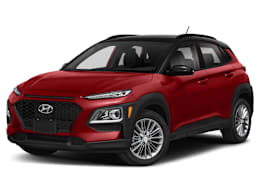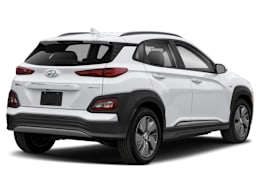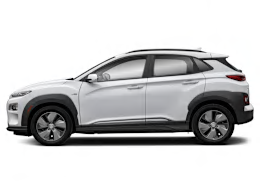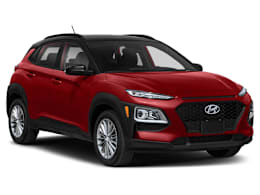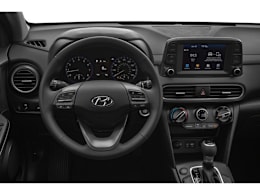The Kona is playful and inexpensive, making it one of the more appealing subcompact SUVs. Its snazzy styling helps it stand out from some of its more drab rivals, and its smart packing creates quite a bit of versatility despite its compact proportions.
Its responsive handling and sharp reflexes make the Kona much more enjoyable to drive than either the Chevrolet Trax or Honda HR-V, two of the Kona’s main competitors.
The ride is stiff, the cabin is loud, and the engine makes a noisy protest when pushed, all of which are common in the subcompact class.
Our tested Kona's 2.0-liter engine and six-speed automatic transmission delivered adequate power in most situations. But it took a long 11 seconds to go from 0-60 mph. We measured 26 mpg overall in our fuel-economy tests, typical for this class.
The Kona is also offered with a more lively 1.6-liter turbocharged four-cylinder engine. That engine packs a strong midrange punch and makes the Kona quicker, but it's hampered by a hesitation off the line and its uneven power delivery.
A natural step-in height makes it easy for drivers to settle into the Kona’s comfortable front seats. An affordable options package adds a power driver's seat with two-way adjustable lumbar support, a rare perk for this class. Although the room in back is tight, the rear seat is still hospitable for adults.
The overall cabin ambience is rather basic, befitting the low base price. We like the easy-to-use controls and infotainment system, with its large screen and well-labeled buttons. Android Auto and Apple CarPlay compatibility are standard.
Forward collision warning and automatic emergency braking are standard.




